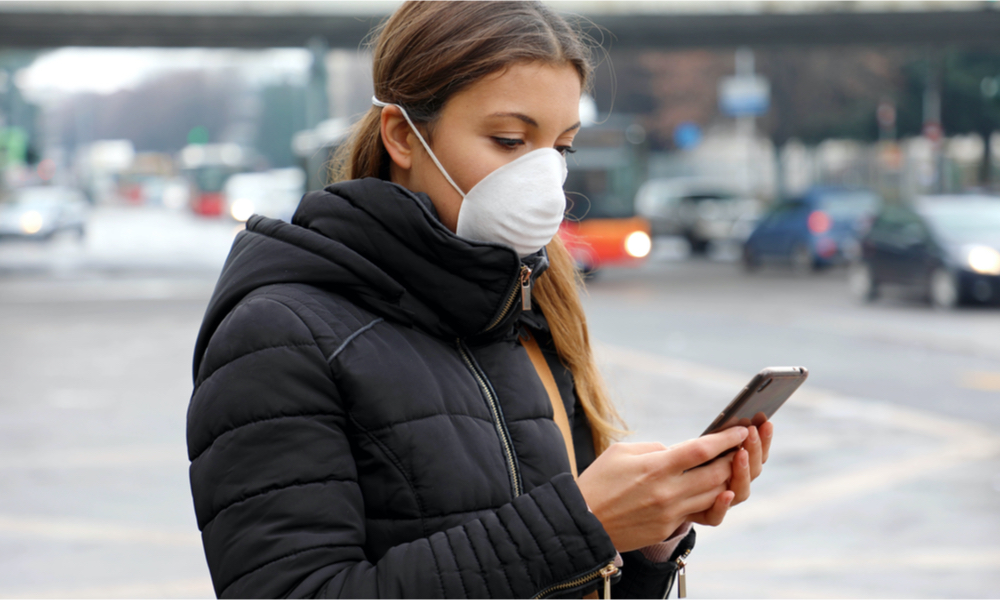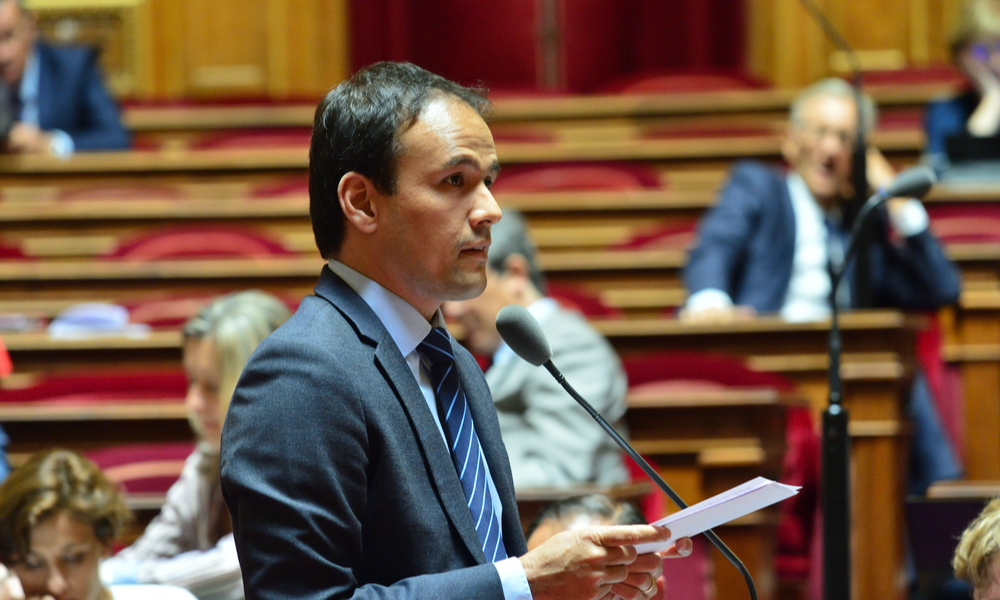France Accuses Apple of ‘Not Helping Out’ with COVID-19 Response
 Credit: Zigres / Shutterstock
Credit: Zigres / Shutterstock
Toggle Dark Mode
Despite efforts by two of the world’s largest tech giants, to build important and innovative tools into their mobile operating systems to help fight the ongoing global pandemic, it seems that a few countries are not only insisting on following their own less privacy-conscious paths, but going so far as to accuse Apple of actually hampering their efforts.
Last month, Apple and Google announced that they would be building what they’ve now dubbed an “Exposure Notification System” into their respective mobile operating systems that would allow iPhones and Android smartphones to keep track of which other smartphones they’ve come into contact with, thereby helping people know when they’ve been exposed to somebody who is later diagnosed with COVID-19.
Apple and Google have only built the underlying framework for this, relying on government health organizations to actually tie into it with their own apps, but the key is that both companies have built some innovative software engineering miracles in order to ensure that the system works with privacy as a core component.
For example, users have to specifically opt-in to use the system, location services aren’t used at all, the identifiers broadcast from each smartphone over Bluetooth are randomized and change on a regular basis so that users can’t be tracked through other means, and the list of other devices your iPhone comes into contact with is stored only on your iPhone, and used only to send notifications to those devices if you receive a positive COVID-19 diagnosis and explicitly choose to share that information.
By all estimations, it’s a great system, but unfortunately not all government bodies agree with the approach that Apple and Google are taking. Chief among these is France, which, while acknowledging that Apple and Google’s approach was “innovative and efficient,” insisted that it must develop its own solution for the sake of “technological sovereignty” rather than being “constrained by the choices of a large company,” according to a post by the country’s Minister for Digital Affairs, Cedric O that was recently shared by Reuters.
Apple Is ‘Not Helping Out’
Instead, France plans to begin testing its own “StopCOVID” contact tracing app beginning next week as it begins to loosen up its lockdown efforts. However, French authorities have been asking Apple for help to let their own app work better in the background on its own by loosening some of the restrictions in iOS.
Naturally, Apple hasn’t been any more receptive to this idea than it was when asked by the FBI and other law enforcement agencies to modify iOS to break through the security on iPhones under government investigation, but France apparently hasn’t been too happy with Apple’s response, with O telling BFM Business TV that “Apple could have helped us make the application work even better on the iPhone. They have not wished to do so,” and pointing the finger at Apple for being unwilling to come to France’s aid, according to Reuters.
“I regret this, given that we are in a period where everyone is mobilised to fight against the epidemic, and given that a large company that is doing so well economically is not helping out a government in this crisis.”
Cedric O, French Minister for Digital Technology
O added that, “We will remember this when the time comes.”
Apple’s Solution Is Too Private
Of course, Apple is already offering a much better solution, but the real problem is that its too private for French authorities, who want all of the contact tracing information stored in a centralized government database on the basis that this would make it easier for the authorities to track suspected coronavirus cases and take whatever action they deem necessary — something that Apple and Google adamantly refuse to be a part of, since of course this opens the door for all sorts of potential abuse.
In fact, this week Apple outlined an additional list of requirements that governments must contractually agree to in order to be allowed to develop apps that use the new Exposure Notification framework. Chief among this is not only putting user privacy first by avoiding all unnecessary data collection, but also guaranteeing that data from the Exposure Notification system will not be used for purposes like enforcing quarantine restrictions by law enforcement. In short, Apple is endeavouring to make sure that it’s not laying the groundwork for countries to turn its solution into the tools of a police state.
However, as far as France is concerned, Apple is overstepping its bounds by mandating these restrictions, insisting that “big American companies” have no right to dictate how governments fighting the coronavirus should be allowed to proceed.
We consider that oversight of the healthcare system, fighting the coronavirus, is a matter for governments and not necessarily for big American companies.
Cedric O, French Minister for Digital Technology
France is not alone in its approach to contact tracing apps, although it is becoming an outlier among European countries. Germany originally resisted the idea, but recently did an about-face, deciding it would sign on with the Apple-Google solution, along with many other EU countries. Only the U.K. has insisted on taking a radically different approach that could potentially be even more invasive than what France is working on, much to the chagrin of privacy advocates. Britain is poised to begin testing its app on the Isle of Wight this week, but as The Register points out, it’s likely not only a very bad idea, but could even be illegal due to its insistence on collecting user location data and storing it in a centralized government database.
Of course, as with the famous case of the FBI and the San Bernardino shooter, Apple tends to look at the long-term impact of the security and privacy decisions that it makes, and it’s understandable how it sees the decentralized approach to contact tracing as being crucial to avoid opening the doors to the potential for abuse by governments, even if they are approaching it with the best intentions in trying to fight a global pandemic.







